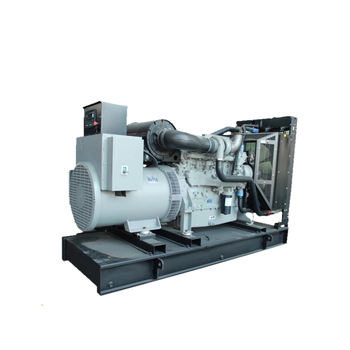
Choosing the right generator for your home or business can feel like navigating a minefield. With so many options available, it's easy to get overwhelmed. This article aims to simplify the decision-making process by comparing two popular choices: diesel gensets and gas gensets. Which is better? The answer, as you'll soon discover, depends on your specific needs and priorities.
Understanding the Basics: Diesel vs. Gas
Diesel gensets are known for their robustness and longevity. They run on diesel fuel, a more energy-dense fuel than gasoline. This translates to better fuel efficiency and longer run times, making them ideal for continuous operation. Gas gensets, on the other hand, run on gasoline, readily available and generally less expensive than diesel. They are often preferred for their lower upfront purchase price and quieter operation.
Cost Comparison: Initial Investment vs. Long-Term Expenses
While gas gensets typically have a lower initial purchase price, diesel gensets often prove more economical in the long run. Consider this: diesel fuel, while sometimes more expensive per gallon, provides more power per unit than gasoline. This results in lower fuel consumption and reduced operating costs over time. The long-term cost-effectiveness of a diesel genset versus gas genset can also be influenced by factors such as usage frequency and local fuel prices.
Maintenance and Lifespan: Durability and Reliability
Diesel gensets are built to last. Their robust construction and simpler engine design contribute to a longer lifespan and require less frequent maintenance compared to gas gensets. However, when maintenance is required for a diesel genset, it can be more expensive. Gas gensets, while requiring more frequent maintenance, often involve simpler and less costly repairs.
Environmental Impact: Emissions and Noise Pollution
Diesel gensets have historically been associated with higher emissions. However, modern diesel technology has significantly reduced particulate matter and NOx emissions, making them a cleaner option than older models. Gas gensets generally produce fewer emissions than older diesel engines but still contribute to air pollution. Both diesel and gas gensets produce noise pollution, although advancements in sound attenuation technology have minimized this concern.
Choosing the Right Genset for Your Needs: Best Standby Power Solution
So, which is better: a diesel genset or a gas genset for standby power? The answer depends on your specific requirements. If you need a reliable, long-lasting generator for frequent or continuous use, such as for a business or industrial application, a diesel genset is likely the better choice. If you need a backup generator for occasional use during power outages in your home, and prioritize lower upfront costs, a gas genset might be more suitable.
Fuel Storage and Availability: Considering Practicalities
Diesel fuel has a longer shelf life than gasoline, making it a more practical choice for long-term storage. However, gasoline is more widely available, which can be a significant advantage in emergency situations. Considering fuel storage and availability is crucial when choosing between a diesel genset and a gas genset for emergency power.
Power Output and Run Time: Meeting Your Energy Demands
Diesel gensets are available in a wider range of power outputs, making them suitable for powering everything from small homes to large industrial facilities. They also offer longer run times due to their fuel efficiency. Gas gensets are generally suited for smaller applications with lower power demands.
What are your primary power needs? How frequently do you anticipate needing backup power?
These are crucial questions to ask yourself when comparing diesel gensets vs. gas gensets. By carefully considering your specific needs and priorities, you can make an informed decision.
Making the Right Choice: Long-Term Power Solutions
Choosing between a diesel genset and a gas genset is a significant decision. By considering the factors discussed in this article – cost, maintenance, lifespan, environmental impact, fuel availability, and power output – you can determine which type of generator best suits your specific needs. Take the time to research different models and consult with a qualified professional to ensure you make the right choice for a reliable and efficient long-term power solution. Contact a local generator supplier to discuss your power requirements and get personalized recommendations.






